Jurassic Park (1993)
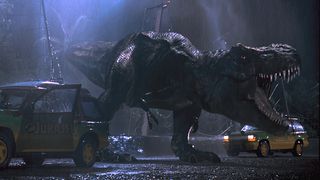
The Book: Jurassic Park - Michael Crichton (1990)
Why It's Better: We know imagination is a powerful tool and all, but there's simply no beating the moment you see those dinosaurs for the first time. Spielberg also weaned a sizeable chunk of the sciencey stuff out of his script, making the story much more accessible to those of us that don't speak fluent genius.
Harry Potter and the Order of the Phoenix (2007)
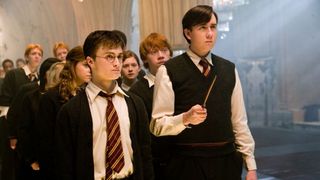
The Book: Harry Potter and the Order of the Phoenix - J. K. Rowling (2003)
Why It's Better: We know, we know. The Potterheads won't like this one. There's no denying that Rowling is one of our greatest ever storytellers, but the fifth (and longest) book does, at times, get a bit… dare we say it… boring.
Luckily for us, movies do have a time limit, so director David Yates was able to focus more on the growing oppressive regime of the Ministry of Magic, and skip the many, many, many pages of students snogging and Harry's newly discovered teenage angst.
Extra bonus points for the genius casting of Imelda Staunton as one of the most harrowing baddies ever to rock a baby pink fluffy cardigan.
Julie & Julia (2009)
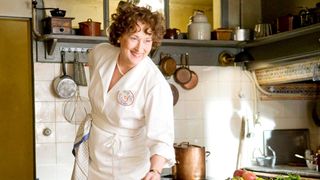
The Books: My Life In France - Julia Child (2006) and Julie & Julia: 365 Days, 524 Recipes, 1 Tiny Apartment Kitchen - Julie Powell (2005)
Why It's Better: The only entry in our list to be inspired by a blog entry, Julie & Julia turned a straightforward tale of girl meets groceries into a warm and charming movie.
Meryl Streep and Amy Adams both put in sterling performances as the titular characters, and the late, great Nora Ephron intertwined the two timelines neatly.
Mean Girls (2004)
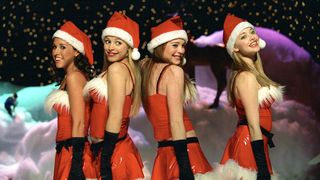
The Book: Queen Bees and Wannabees - Rosalind Wiseman (2002)
Why It's Better: Only the great Tina Fey could read a non-fictional self-help book for disoriented teenage girls and turn it into easily the most quotable movie of the last decade.
Fey knew instantly that Queen Bees would make a brilliant film, and set about giving it a plot based partly on her own experiences at high school.
Following new kid Cady Heron (Lindsay Lohan) as she tries to manoeuvre her way around the warzone that is the clique system, Mean Girls manages to teach a few lessons about girl-on-girl kindness, without ever becoming preachy.
Fight Club (1999)
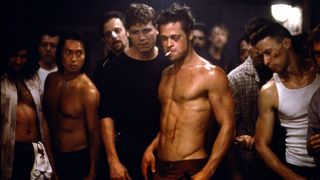
The Book: Fight Club - Chuck Palahniuk (1996)
Why It's Better: A classic book becomes a classic movie. This one might be a case of personal preference, but we love seeing Palahniuk's chaotic plots played out so well on film.
The movie has little moments of real magic that the book just can't offer - the visual effects in the Ikea catalogue apartment, the subliminal flashes of Tyler's face, THAT moment where you see the narrator beating himself up all alone in a car park…
Fincher even added in a slightly more romantic ending (well, as romantic as you can get after shooting yourself in the head), but Palahniuk reportedly loved it. We call that a slam dunk.
Breakfast At Tiffany's (1961)
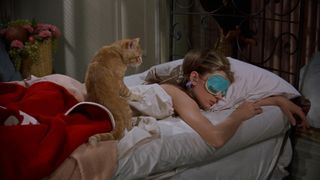
The Book: Breakfast At Tiffany's - Truman Capote (1958)
Why It's Better: Blake Edwards' re-imagining of Capote's classic short story differs so wildly from the original material that it's almost impossible to choose one that's superior.
The film often comes under criticism for losing much of the novella's grittiness, but Hepburn is so whimsically charming as Golightly it's easy to forgive.
Die Hard (1988)
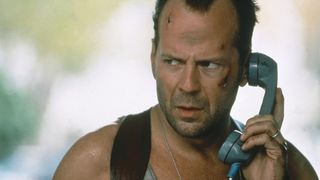
The Book: Nothing Lasts Forever - Roderick Thorp (1979)
Why It's Better: It could have all been so different. Long before Bruce Willis donned a grimy tank top and saved Christmas as John McClane, motherfucker, there was the tale of Joseph Leland, a retired NYPD cop who took on a group of Cold War era German terrorists at the office where his daughter worked.
Director John McTiernan felt it was important to change up elements of the book, and in doing so created one of the classic American action films.
The film also does away with Thorp's darker finale, where Leland is left presumably succumbing to his injuries, although we can't help thinking that if they'd stuck with that we might have avoided A Good Day To Die Hard , but you can't have everything.
The Painted Veil (2006)
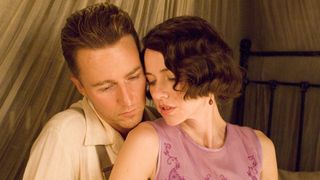
The Book: The Painted Veil - W. Somerset Maugham (1925)
Why It's Better: Screenwriter Ron Nyswaner teamed up with leading man Ed Norton to transform Maugham's dark novel, and what a job they did.
Norton was convinced that underneath the "unremittingly bleak" book there lay a story of love, loss and transformation, and strived to give Walter and Kitty the romance that Maugham never allowed for.
Norton said of his adaptation: "I like to think that we didn't change the book so much as liberate it. We just imagined it on a slightly bigger scale, and made external some of what is internal in the novel."
The Notebook (2004)
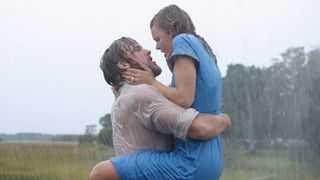
The Book : The Notebook - Nicholas Sparks (1980)
Why It's Better: Sparks is the undisputed king of literary schmaltz, producing over-sentimental romance drama novels like they're going out of style.
Almost everything he writes is turned into a movie before he can even hit the print button, but it's Nick Cassavetes' adaptation of The Notebook that has become the most powerful version of his works.
The excellent pairing of Rachel McAdams and Ryan Gosling as the star-crossed lovers allowed audiences to focus more on the authentic and touching love story, rather than getting lost in the mawkishness of the novel, and it's now a requisite part of girlie sleepovers across the world.
The Mist (2007)
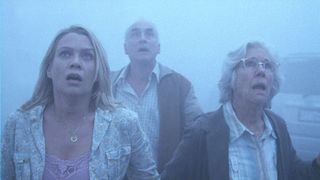
The Book: The Mist - Stephen King (1980)
Why It’s Better: Stephen King's novella may have had all the makings of a classic sci-fi horror story (science experiments gone oh-so wrong, enormous tentacled insects, religious fanatics etc.), but it was scriptwriter and director Frank Darabont's brave decision to switch up the book's optimistic ending that turned it into a bleakly terrifying piece of cinema.
We don't want to ruin it for you, but get ready to spend a long time staring aimlessly into the distance whilst considering your own mortality. Ouch.
